You must have to know the eating habits of chickens & roosters if you wish to raise some birds on your backyard or if you have already started raising a few.
Chicken health mostly depend on their eating habits and the food they are eating. By keeping your laying hens healthy, you can expect a continue production of fresh and wholesome eggs.
Roosters are not necessary for regular egg production from your laying hens. You will need a rooster for fertilizing the eggs that your hens lay. Roosters also produce meat, so you can raise a few roosters for quality meat production purpose.
Eating Habits of Chickens & Roosters
Generally the eating habits of chickens and roosters are identical. But your laying hens require more protein enriched food with all types of vitamins and minerals available.
Feeding
Both of your laying hens and roosters require balanced food enriched with carbohydrates, fat, protein, minerals and vitamins. Laying hens require more calcium than the roosters or other meat producing chickens.
The best idea for fulfilling necessary nutrients for all types of birds is to purchasing ready made feed that is prepared and nutritionally balanced for every type of birds.
You can easily find this type of poultry feed in your nearest market. Eating habit and amount of feed your chickens eat depends on the breed you are raising.
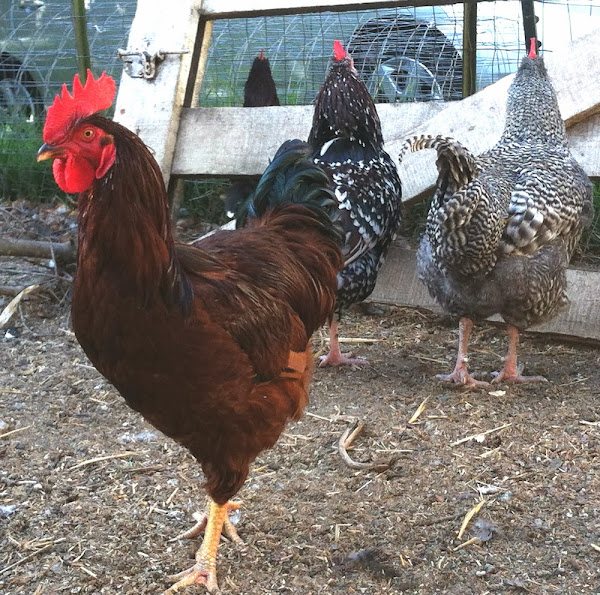
Generally chickens stop eating when they have eaten the amount of food they need. Fill their feeder with foods, if your chickens eat the food quickly then add more food next time.
If a large quantity of food left, then reduce the amount of food next time. Never try to feed your chickens moldy or stale food.
Because this type of food can cause serious health problems, even your laying hens can also stop laying eggs. So, always provide them adequate amount of fresh and nutritious foods.
Water
All types of poultry birds need constant supply of clean and fresh water all time. Constant fresh water supply also help them eating proper amount of food they need for maintaining good health.
Usually the less water they drink, the less food they will eat. You know, most part of an egg is made with water. So constant supply of fresh water is must for your laying hens.
Your chickens will produce more, and better quality eggs and meat by feeding them nutritionally balanced food and sufficient amount of clean and fresh water according to their demand. Never serve your chickens dirty or foul water and clean the watering pot on a regular basis.
Scratch & Scraps
Chickens love browsing and foraging around in the dirt. They also love plucking up delectable insects, grasses, dirt, pebbles and even the occasional rodents.
This is a natural habit of chickens. Laying hens with foraging facility, lay more nutritious and quality eggs than the chickens raised in cages with commercial feed.
Remember, foraging is a healthy habit for your chickens. If you are unable to raise chickens in free range system, you can purchase commercially prepared scratch mixes for them.
You can also serve your chickens kitchen scraps such as various types of vegetables, fruits etc. But ensure that the scraps are fresh and not foul. Your chickens will enjoy the fresh kitchen scraps.
Roosters
Eating habit of rooster is similar to your chickens. There are little differences between the eating habits of chickens and roosters. Usually a rooster search for good around the entire flock.
If he find any suitable food, he make a signal to other chickens. And while his hens eat the food, he stand as a guard. After that he will join when the hens have eaten some food.
Sometimes aggressive roosters may fight for a larger share. Separate the aggressive roosters from your flock.
Hope this guide has helped you. Consider sharing it with your friends and family members if you find it helpful. Good luck and may God bless you!
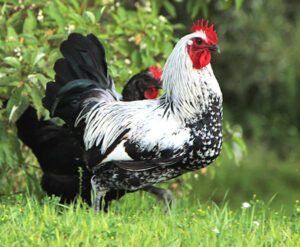
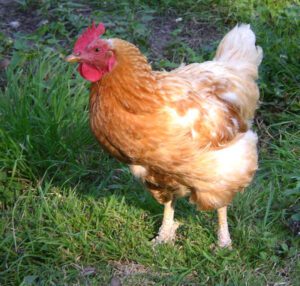
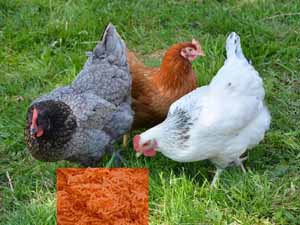
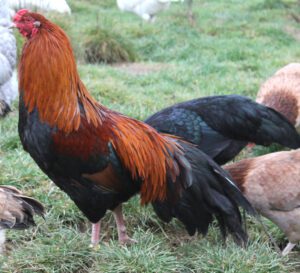
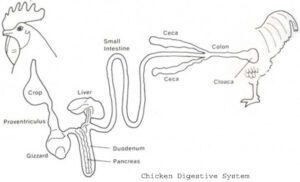
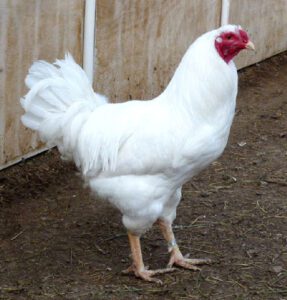
What to give to may small flock of backyard chicken?
For a small backyard flock of chickens, it’s essential to provide a well-balanced diet to ensure their health and productivity. The foundation of their diet should be a high-quality commercial chicken feed appropriate for their age and purpose. Starter feed is for chicks, grower feed for young birds, and layer feed for hens producing eggs. Follow the feeding instructions on the feed bag. Ensure your chickens have constant access to clean, fresh water. Regularly clean and refill their water containers to prevent contamination. Scratch grains can be occasional treats, consisting of grains like corn, wheat, or barley, to supplement their diet. Use scratch grains sparingly. Chickens enjoy a variety of produce, including apples, carrots, leafy greens, and melons. These treats can be given in moderation. Offer protein-rich treats like mealworms, earthworms, or black soldier fly larvae, especially for free-range chickens. Protein is essential for growth and egg production. Chickens require grit (small stones or pebbles) to aid in digestion. Provide access to grit, particularly if they don’t forage naturally. Layer hens need extra calcium for strong eggshells. Crushed oyster shells or commercial calcium supplements can be offered free-choice. Ensure a safe, comfortable coop or shelter that protects them from predators and harsh weather. For laying hens, provide clean, cozy nesting boxes for egg laying.
By offering these essentials and maintaining a clean and safe environment, you’ll promote the well-being and productivity of your small backyard flock of chickens. Good luck & may God bless you!
Maize, wheat or rice which increase egg production in hens?
Rice helps to increase eggs production in hens. On the other hand, wheat and maize helps to gain weight. Good luck!